Self-Assessment Assignment: Emotional Intelligence and Leadership
VerifiedAdded on 2021/04/21
|5
|1083
|100
Homework Assignment
AI Summary
This assignment is a self-assessment report where the student evaluates their own capabilities and qualities, focusing on emotional intelligence, decision-making abilities, and leadership potential. The report highlights the student's strengths, such as a high emotional intelligence score indicating the ability to express emotions and optimism, and a strong motivation to lead. The assessment also identifies areas for improvement, such as decision-making skills, and suggests resources for further development. The student reflects on how self-assessment practices can reveal both positive and negative aspects of personality, which is crucial for understanding how one reacts in different situations and manages organizational work. The references include research on self-assessment, personality, leadership, and emotional intelligence, supporting the analysis of the student's self-perception and potential for leadership roles. This assignment provides a detailed look into how one can assess themselves to improve their skills and personality.
1 out of 5
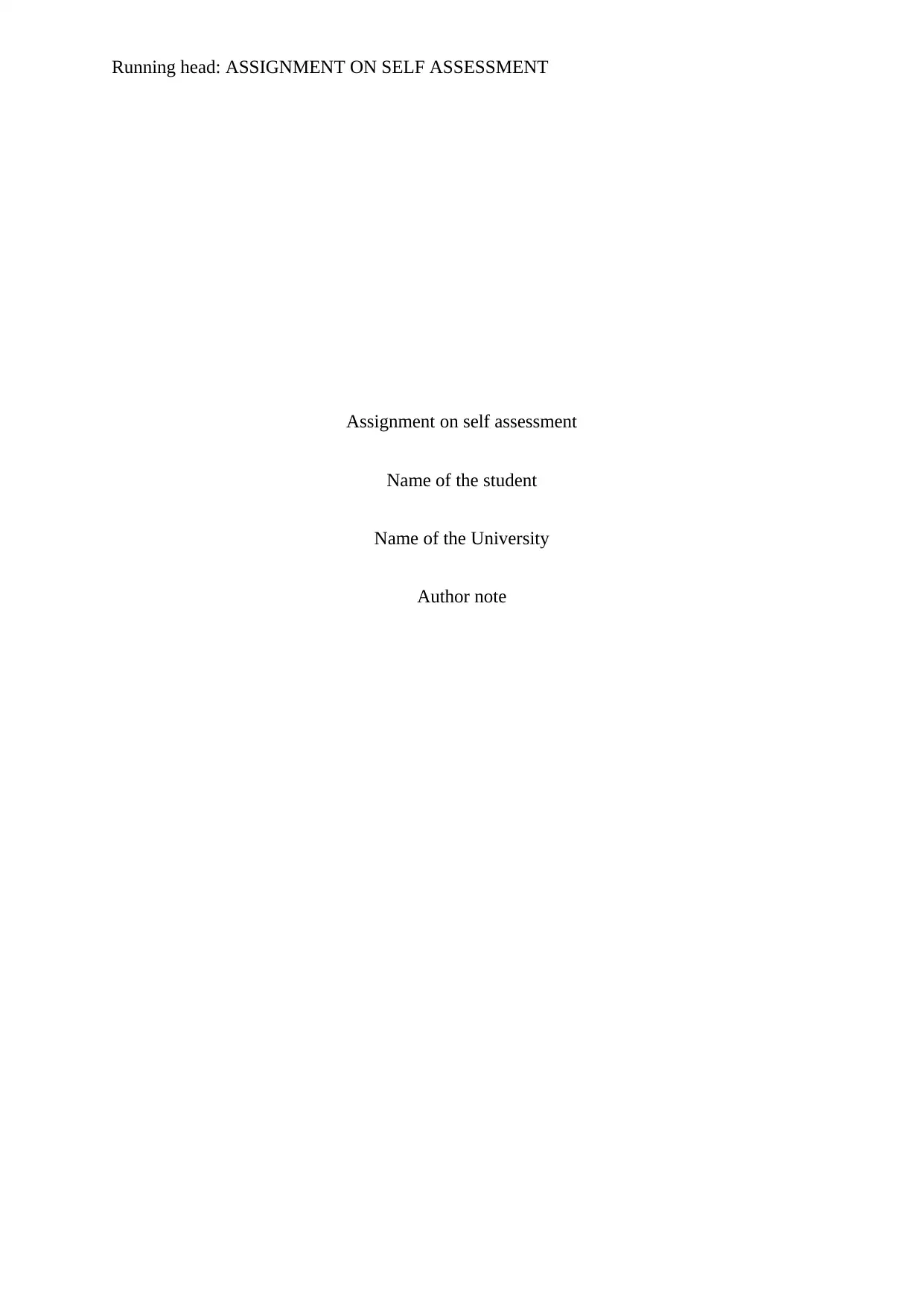
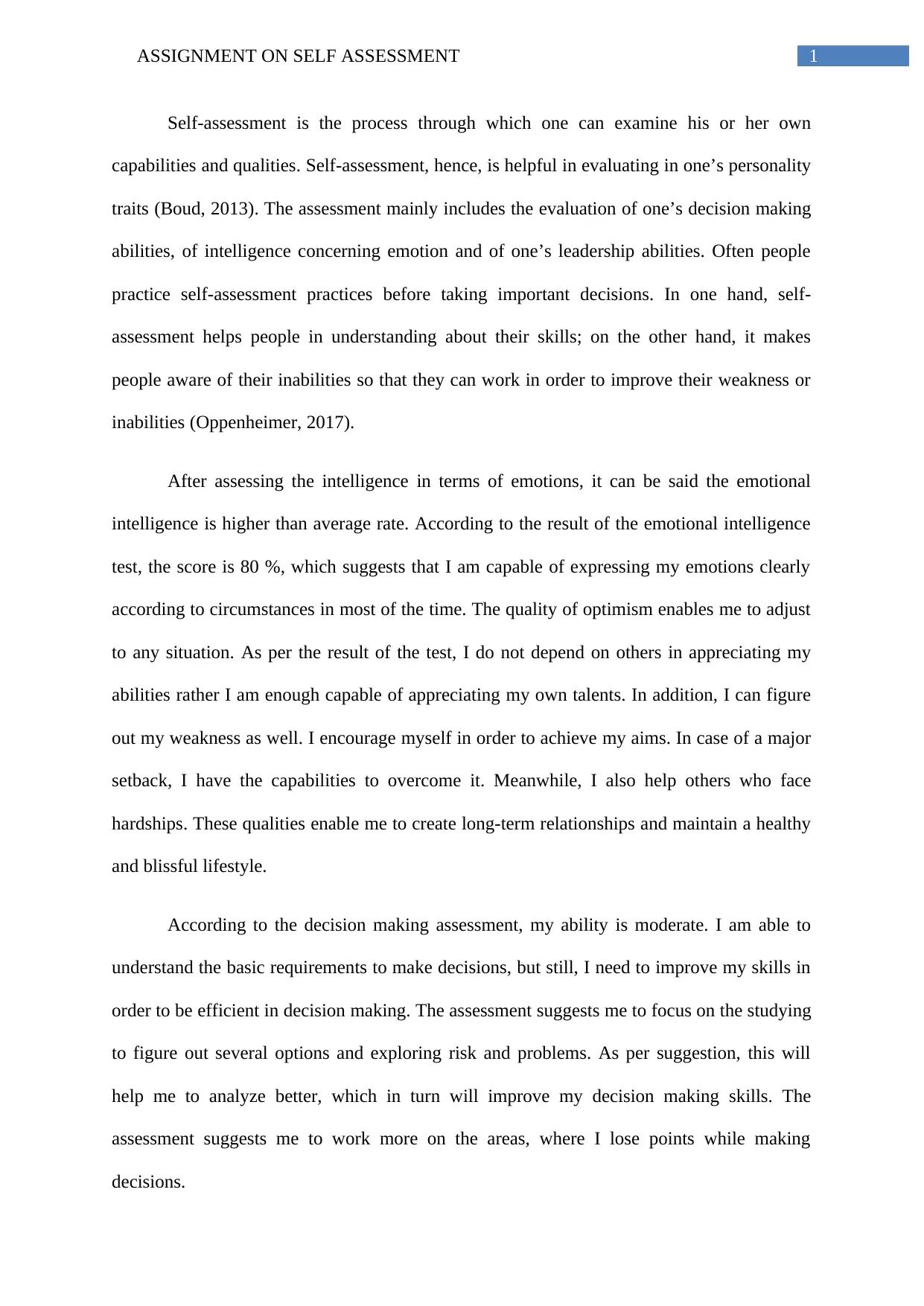
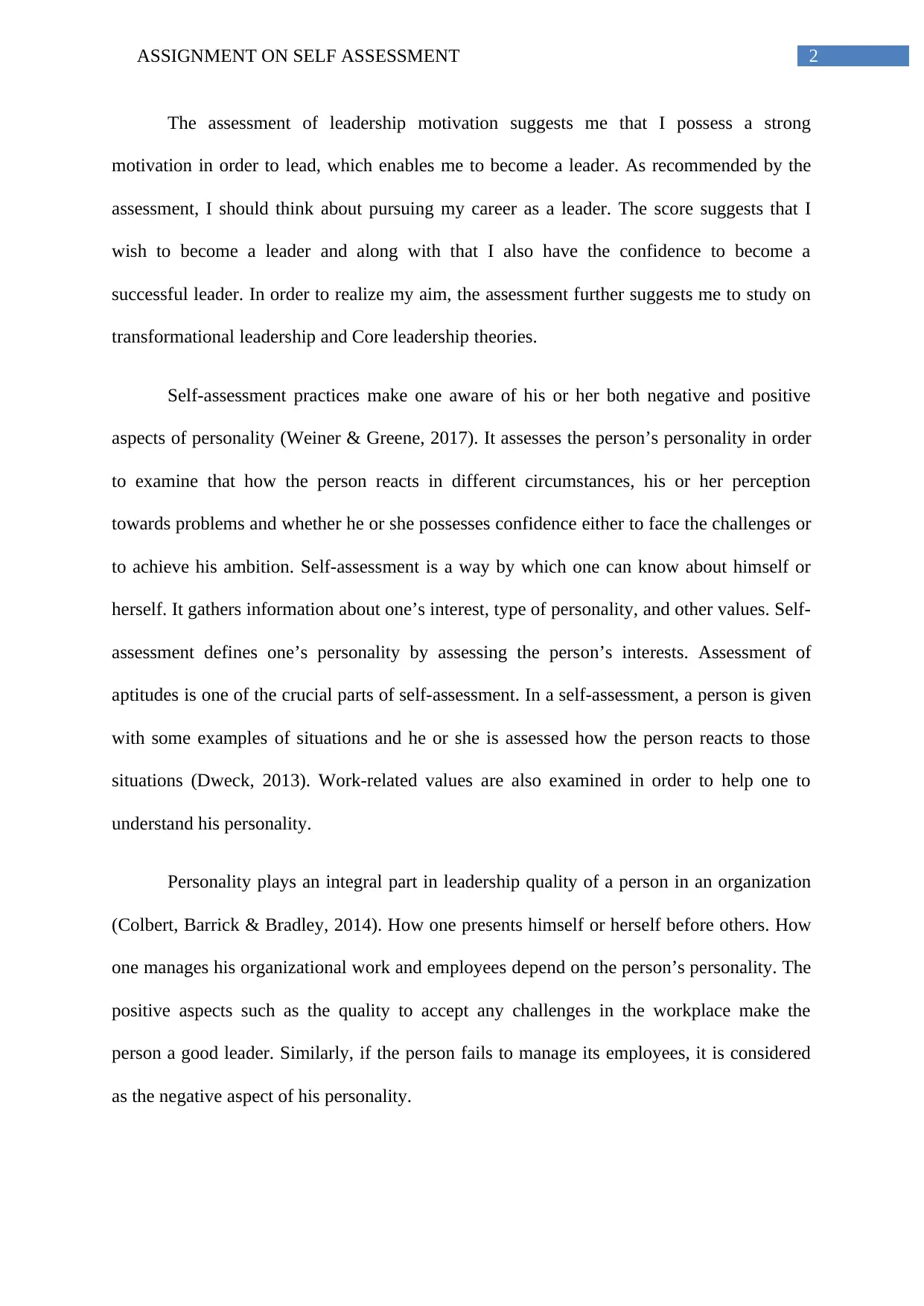

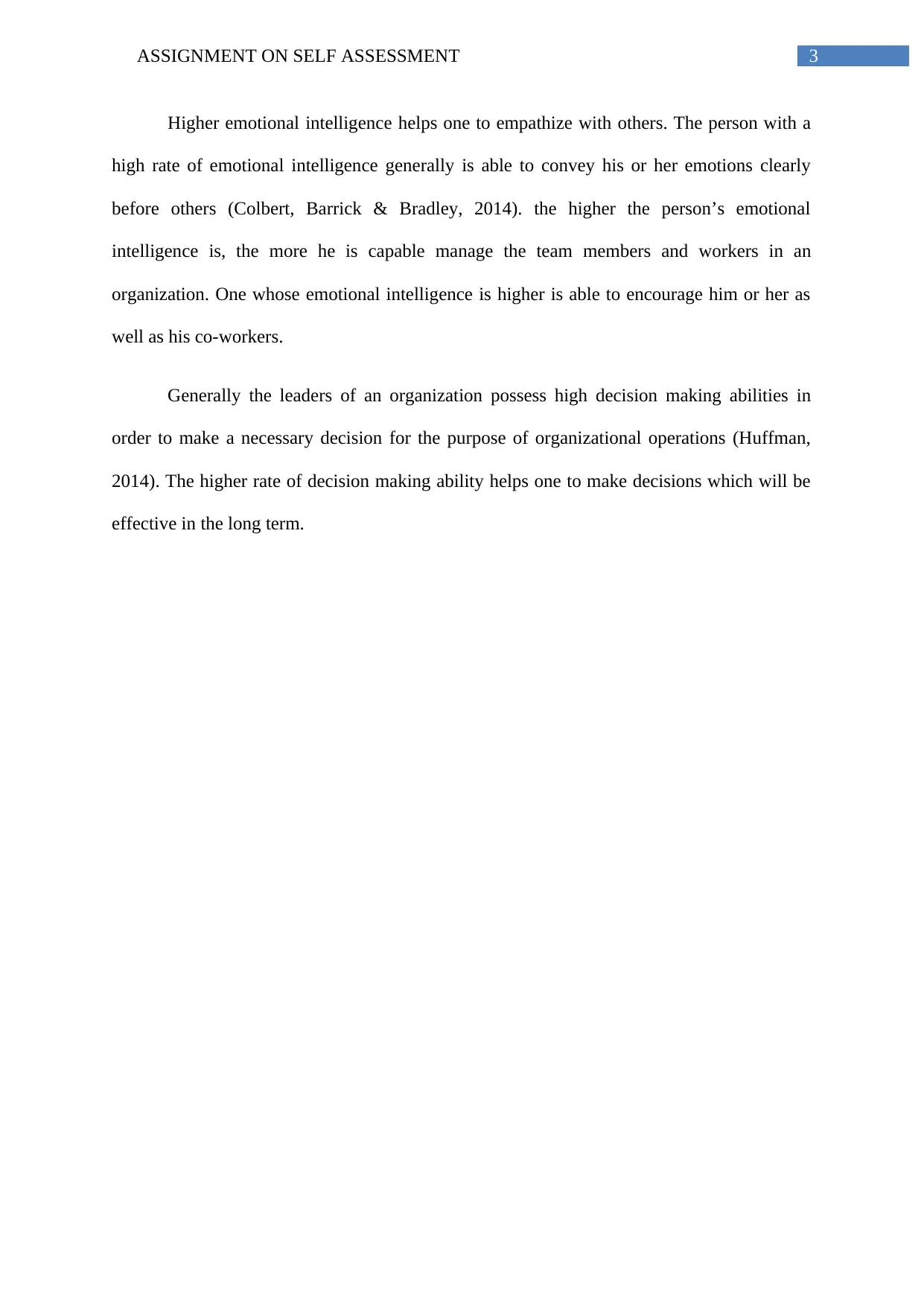
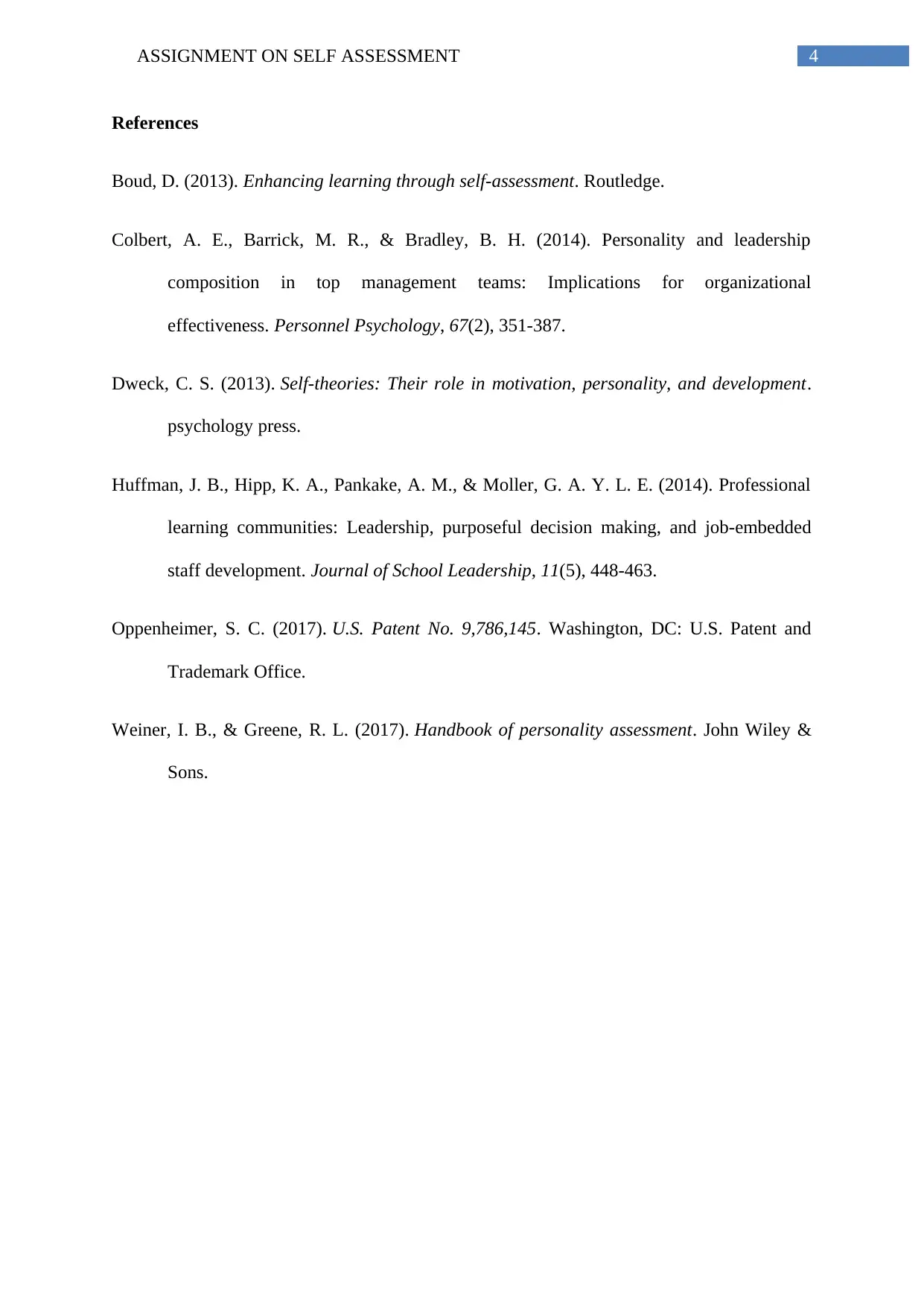






![[object Object]](/_next/static/media/star-bottom.7253800d.svg)